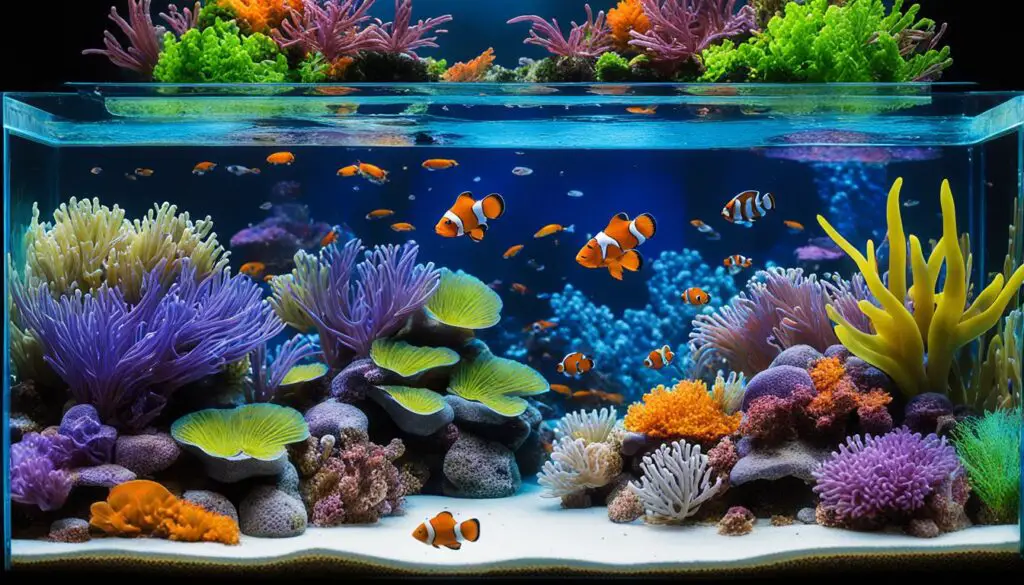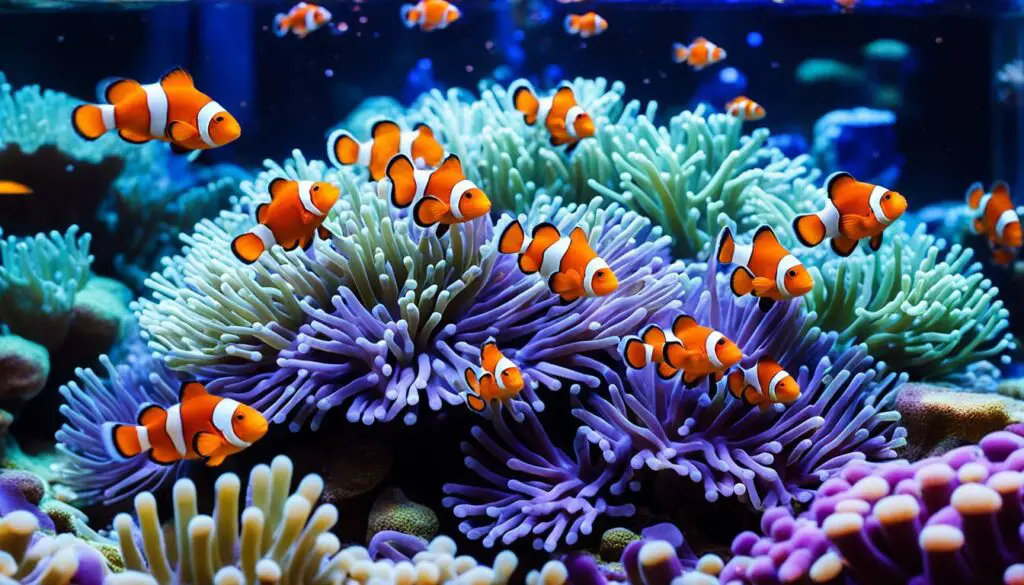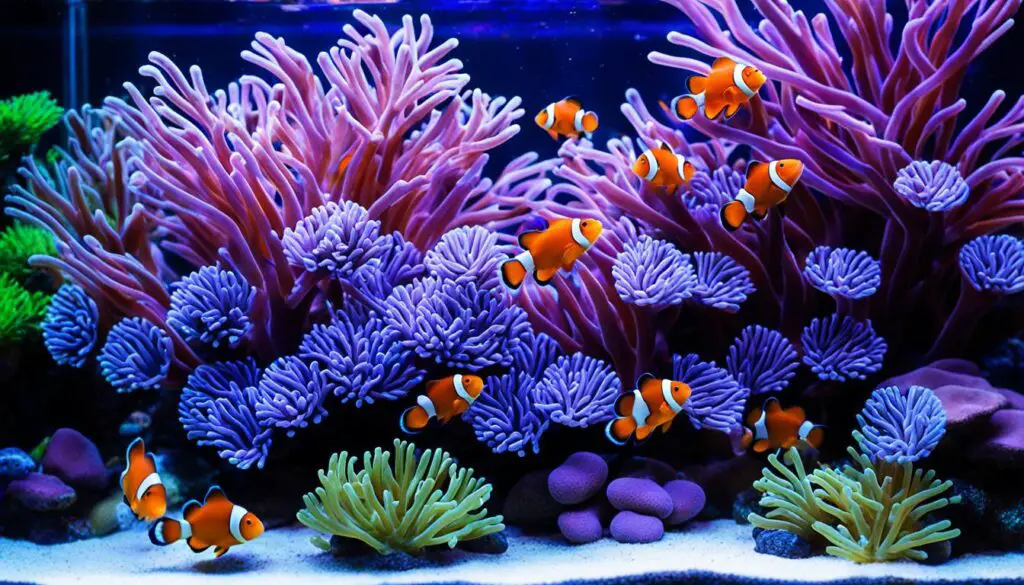How Long Do Octopuses Live

Introduction
How Long Do Octopuses Live : Octopuses, those enigmatic and highly intelligent denizens of the deep, have fascinated scientists and ocean enthusiasts for centuries. One of the many intriguing aspects of these remarkable creatures is their lifespan. Octopuses are not known for their longevity compared to some other marine species, but their lifespans vary significantly depending on various factors.
On average, octopuses live for one to two years in the wild, with most species falling within this range. However, exceptions exist, and some octopuses can exceed this lifespan by a considerable margin. Understanding the factors that influence octopus longevity is a subject of keen scientific interest.
We delve into the captivating world of big octopuses and their lifespan. We’ll uncover the species-specific variations in how long they live, the environmental conditions that impact their longevity, and the mysteries surrounding their aging processes. From their short but eventful lives to the secrets they hold about the oceans they inhabit, the journey into the lifespan of octopuses promises to be an intriguing and informative one.
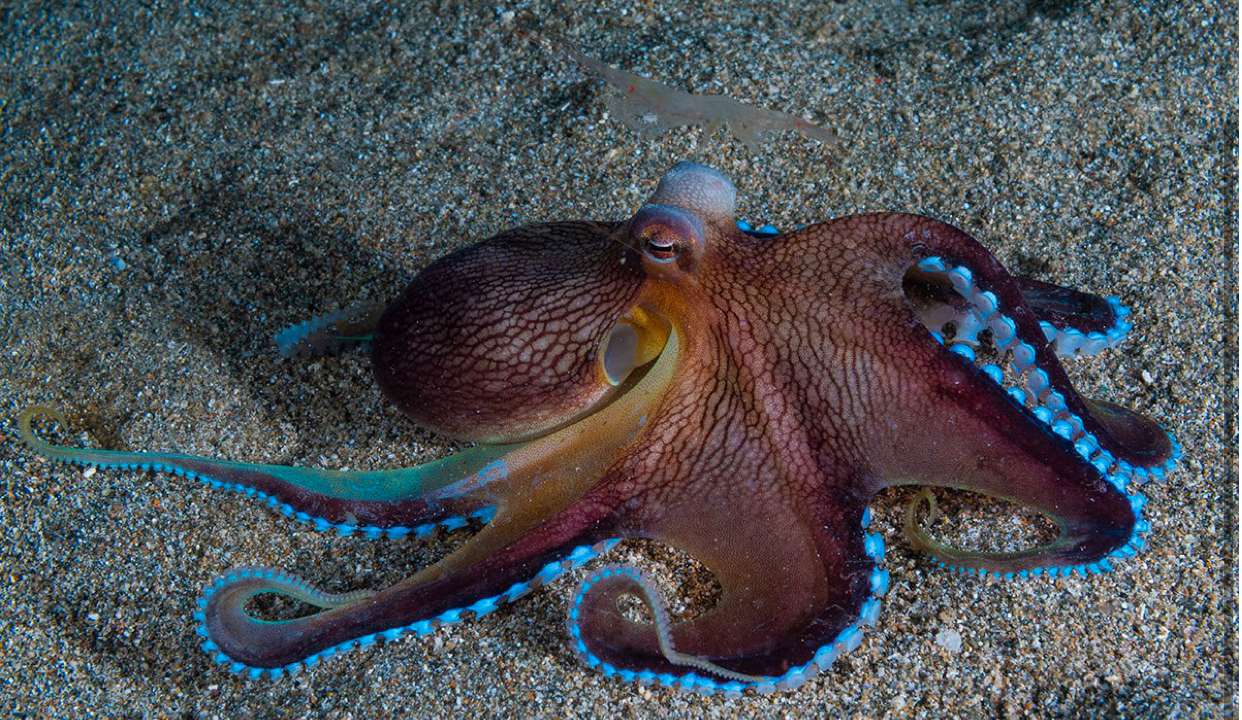
Why are octopuses so short lived?
It varies according to species, but octopuses, both wild and captive, live roughly 1 to 5 years. This short lifespan is a consequence of a reproductive strategy known as semelparity, meaning that octopuses breed only once in their lifetime and die shortly thereafter.
Octopuses are indeed relatively short-lived creatures, with an average lifespan typically ranging from one to two years in the wild. Several factors contribute to their relatively brief lifespans:
- Semelparity (Single Reproductive Event): Octopuses are semelparous animals, meaning they reproduce only once in their lifetime. Reproduction is a highly energy-demanding process for them, and it often leads to their death shortly after laying and guarding their eggs. The energy expended in producing and caring for offspring leaves them physically weakened and vulnerable to predators.
- Predation: Octopuses have a wide array of natural predators, including sharks, larger fish, sea otters, and even other octopuses. Their soft bodies offer little protection, and their primary defense mechanisms, like camouflage and ink release, may not always be sufficient to evade predators.
- Fast Growth and High Metabolism: Octopuses grow extremely rapidly during their short lives. This rapid growth necessitates a high metabolism, which in turn requires a substantial intake of food. Maintaining such a high metabolic rate can be challenging, especially if they don’t find enough prey consistently.
While octopuses may be short-lived compared to some other marine creatures, they make up for their brevity with their remarkable adaptability, intelligence, and intricate behaviors. Their unique biology and life history strategies have evolved to suit their specific ecological niches in the ocean, allowing them to thrive despite their relatively short lifespans.
What is the longest lived octopus?
Northern giant Pacific octopus
The northern giant Pacific octopus (Enteroctopus dofleini) is the largest, longest-lived octopus species. Although its average length and mass are 5 metres and 20 to 50 kilograms respectively, the largest recorded individual was 9.1 metres long and weighed 272 kilograms. They typically live for three to five years.
While the lifespans of individual octopuses can vary due to environmental conditions and other factors, Giant Pacific Octopuses have been documented to live up to five years or even longer in some cases. Here are some reasons for their relatively long lifespan compared to other octopus species:
- Semelparity: Although Giant Pacific Octopuses are still semelparous like most octopuses, they typically invest more time and energy in caring for their eggs. The female guards and cares for her eggs until they hatch, and this dedication to offspring may extend their lifespan compared to species that die shortly after reproduction.
- Large Body Size: Giant Pacific Octopuses are the largest species of octopus, with individuals often reaching weights exceeding 50 pounds and arm spans of up to 16 feet. Their larger size might provide them with more resources and a greater ability to fend off predators, which can contribute to a longer lifespan.
- Habitat and Diet: Their habitat in the cold waters of the North Pacific Ocean is rich in food resources, including crabs, clams, and various fish species. This abundance of food may support a more extended lifespan, as they can sustain their energy needs more effectively.
That octopuses’ lifespans can vary depending on environmental conditions, food availability, and individual factors. While the Giant Pacific Octopus is known for its relatively long life among octopuses, it still pales in comparison to the lifespans of some other marine species. Nonetheless, their unique adaptations and behaviors make them a fascinating species to study in the world of marine biology.
How long can a octopus live for as a pet?
Most species live only one to two years, and a newly imported octopus may have just weeks left. Some robust common species, such as the California two-spot octopus, get along relatively well in captivity. Others, such as the fabled but delicate mimic, do much worse.
In general, octopuses kept as pets tend to have shorter lifespans compared to their wild counterparts. Here’s a detailed explanation of the factors affecting the lifespan of a pet octopus:
- Species: Different octopus species have varying lifespans, both in the wild and in captivity. Some smaller species may only live for a few months to a year, while larger species, like the Common Octopus (Octopus vulgaris), may survive for 1 to 2 years in captivity. The species you choose will play a crucial role in determining your pet octopus’s lifespan.
- Tank Size: The size of the aquarium or tank you provide for your pet octopus is critical. Octopuses require ample space to move and explore, and a cramped environment can lead to stress, decreased activity, and a shorter lifespan. A larger tank with appropriate water quality parameters can positively impact their longevity.
- Diet: Octopuses are carnivorous and require a diet rich in high-quality seafood, such as crabs, shrimp, and fish. Providing a varied and nutritious diet is crucial for their overall health and longevity. Malnutrition can lead to a shorter lifespan.
- Stress and Enrichment: Octopuses are intelligent and curious animals. They need mental stimulation and enrichment in their environment to prevent boredom and stress. Stress can have a negative impact on their lifespan, so providing hiding spots, puzzles, and objects to explore can be beneficial.
The lifespan of a pet octopus can vary significantly, but with proper care, attention to their specific needs, and the right species selection, you can extend their lifespan and enjoy the unique experience of keeping one of the ocean’s most intriguing creatures as a pet.
Can you touch a live octopus?
Researchers consider octopuses to be the most intelligent invertebrates — maybe as intelligent as a house cat. While tidepooling, you might see a red octopus in the intertidal zone, but it’s best not to touch it.
Touching a live octopus can be done, but it requires caution and should be approached with respect for the animal’s welfare. Octopuses are fascinating creatures known for their intelligence and unique adaptations, but they also have some specific considerations when it comes to handling:
- Stress and Sensitivity: Octopuses are sensitive animals, and excessive handling or rough treatment can stress them. Stress can have negative effects on their health and behavior, and it’s crucial to minimize any stressors, including physical contact, as much as possible.
- Wash Your Hands: If you decide to touch an octopus, ensure that your hands are clean and free of any lotions, perfumes, or chemicals. Octopuses are highly sensitive to chemical substances and can react negatively to foreign odors or contaminants on your skin.
- Use Caution and Be Gentle: When touching an octopus, use a gentle touch and avoid sudden movements. It’s best to touch them on their body rather than their arms or tentacles, as their arms are more delicate and can be easily damaged.
While touching an octopus can be a fascinating and educational experience, it should only be done when necessary, and the well-being of the animal should be the top priority. If you have the opportunity to touch an octopus under supervised and responsible circumstances, such as at a reputable aquarium or educational facility, it can be an excellent way to learn about these remarkable creatures while ensuring their welfare.
Do octopus have short lives?
Lifespan. Octopuses have short lifespans, and some species complete their lifecycles in only six months. The Giant Pacific octopus, one of the two largest species of octopus, usually lives for three to five years. Octopus lifespan is limited by reproduction.
Octopuses generally have relatively short lives compared to many other animals, including other marine species. The typical lifespan of an octopus varies among species, but it is relatively brief when compared to mammals or birds. Here are some key factors contributing to the relatively short lives of octopuses:
- Semelparity: Most octopuses are semelparous, which means they reproduce only once in their lifetime. Reproduction is a physically demanding process for octopuses. Females invest a significant amount of energy into laying and guarding their eggs, which often leads to their death shortly after reproduction. This single reproductive event significantly limits their lifespan.
- Rapid Growth: Octopuses experience extremely rapid growth during their short lives. Their rapid growth necessitates a high metabolic rate, which requires a continuous intake of food. Sustaining such a high metabolism can be challenging and contributes to their short lifespan.
- Predation: Octopuses have numerous natural predators in the ocean, including sharks, larger fish, sea otters, and even other octopuses. Their soft bodies provide little protection, and despite their impressive camouflage and ink defense mechanisms, they can still fall prey to these predators.
While octopuses may have relatively short individual lifespans, they have evolved a variety of unique adaptations, including their exceptional intelligence, problem-solving abilities, and complex behaviors. These traits make them successful predators and fascinating subjects of study in marine biology. Therefore, the concept of “short” or “long” lifespan in octopuses is relative and depends on the specific species in question.
What octopus lives the shortest?
Star-Sucker Pygmy Octopus
Star-Sucker Pygmy Octopus (Octopus wolfi)
Found in shallow waters throughout the Indo-Pacific Ocean, this octopus grows no bigger than a bottle cap at 1 inch (2.5 cm) and weighs no more than a raisin about 1 gram (0.04 ounces). They also have the shortest lifespan of around 6 months!
The Paper Nautilus is often cited as having one of the shortest lifespans among cephalopods, typically living for only about 6 to 12 months. There are several reasons for their relatively brief lifespans:
- Semelparity: Like many octopus species, Paper Nautiluses are semelparous. This means they reproduce just once in their lifetime and invest a significant amount of energy into this single reproductive event. After laying their eggs in a specialized, paper-thin egg case, the female typically dies shortly thereafter.
- Rapid Growth: Paper Nautiluses undergo rapid growth during their short lives. This rapid growth, coupled with their reproductive efforts, places considerable metabolic demands on their bodies.
- Predation: Being small and delicate, Paper Nautiluses are vulnerable to a range of predators in their oceanic habitats. Their soft shells provide minimal protection, and they are not equipped with the same defensive mechanisms as other octopus species.
The Paper Nautilus is not a true octopus, as it belongs to a separate family. True octopuses, such as the Common Octopus (Octopus vulgaris) or the Giant Pacific Octopus (Enteroctopus dofleini), generally have longer lifespans, often living for one to two years in the wild, with some exceptions.
Do octopus live longer if they don’t mate?
The length of time that passes between hatching, reproduction and death varies among octopus species. Common octopuses, for example, may live only two years, while giant octopuses can live as long as three years but up to five years as long as they don’t mate.
Octopuses, in general, do tend to live longer if they do not mate. This is because the act of reproduction, particularly in octopuses, is a physically demanding and exhausting process that often results in the death of the individuals shortly after they reproduce. Here’s a more detailed explanation:
- Energy Investment: Female octopuses invest a considerable amount of energy in producing, laying, and guarding their eggs. During this period, they often stop feeding entirely or reduce their feeding significantly, which can lead to physical deterioration and a weakened immune system.
- Senescence: Octopuses undergo a process known as senescence, which is similar to aging in other animals. As they age, their bodies naturally deteriorate, and they may become more susceptible to disease and environmental stressors. Reproduction accelerates this aging process.
- Shortened Lifespan: The act of mating itself can be dangerous for octopuses. Males may need to approach larger, potentially aggressive females, risking injury or even death in the process.
The trade-off between investing energy in reproduction versus extended individual lifespan is a common theme in the natural world, and it varies among species based on their specific reproductive strategies.
There are, however, exceptions to the rule. In some cases, certain species of octopuses may be iteroparous, meaning they can reproduce multiple times in their lifetime without experiencing the same level of post-reproductive decline. These exceptions aside, for the vast majority of octopuses, reproduction is a one-time event that often marks the end of their relatively short lives.
What is the typical lifespan of an octopus species?
The typical lifespan of an octopus species can vary considerably depending on several factors, including the species itself, environmental conditions, and individual circumstances. In general, octopuses are not known for having long lifespans compared to many other animals. Here’s an overview of the typical lifespans of various octopus species:
- Short-Lived Species (Less than 1 Year):
- Common Octopus (Octopus vulgaris): This widely studied octopus species typically lives for about 6 months to 1 year in the wild.
- Coconut Octopus (Amphioctopus marginatus): These small octopuses have a relatively short lifespan, usually ranging from 6 months to a year.
2. Moderate Lifespan (1 to 2 Years):
- Giant Pacific Octopus (Enteroctopus dofleini): One of the larger octopus species, these can live up to 1 to 2 years in the wild.
- California Two-Spot Octopus (Octopus bimaculoides): Known for its use in scientific research, this species typically has a lifespan of 1 to 2 years.
- Day Octopus (Octopus cyanea): Found in tropical waters, this species usually lives for 1 to 2 years.
These lifespan ranges are general estimates and can vary based on environmental conditions, predation, food availability, and individual health. Additionally, some octopus species may exhibit variations in lifespan within their populations.
The relatively short lifespan of octopuses is influenced by their semelparous reproductive strategy, which involves a single, intensive reproductive event followed by a decline in health and often death. However, there are exceptions, and specific individuals of certain species may live longer, especially in controlled environments like aquariums where they receive optimal care and protection from predators.
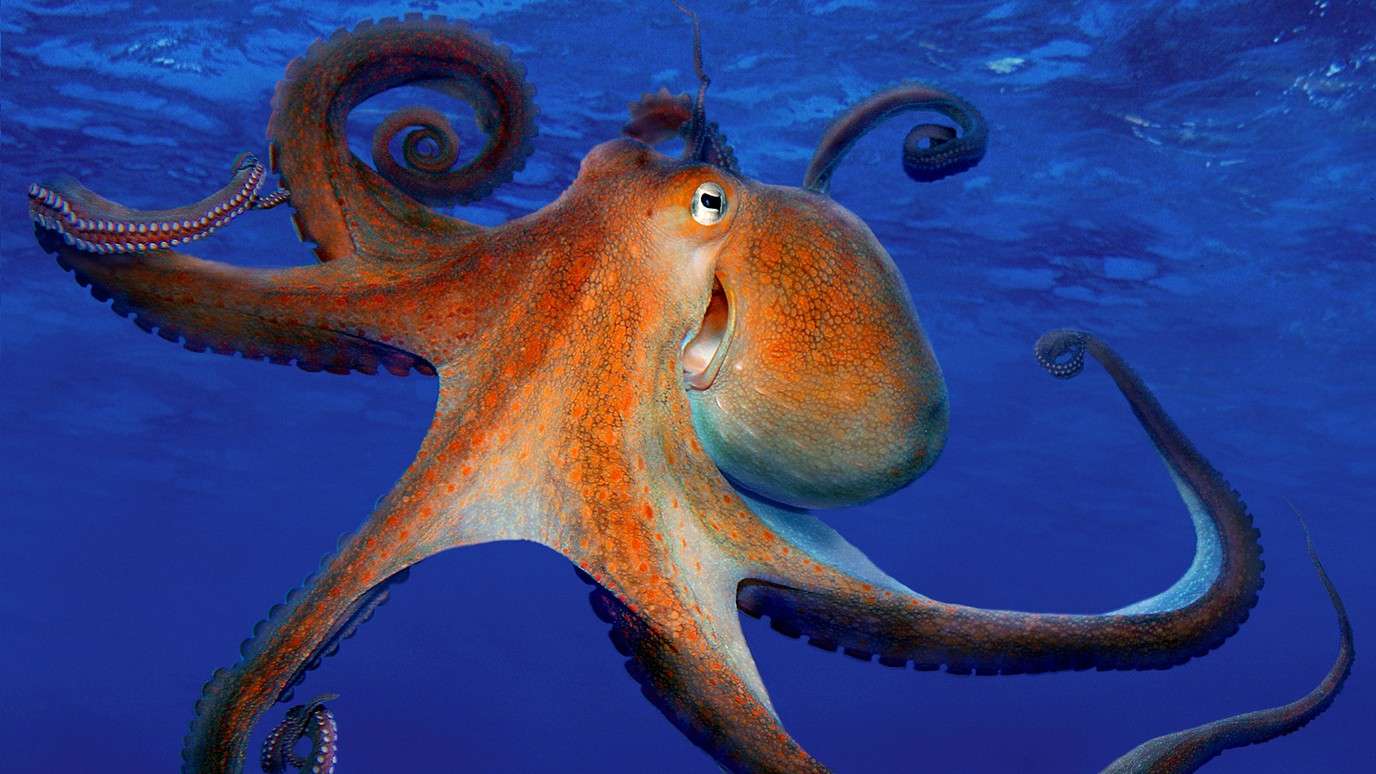
Conclusion
The lifespan of octopuses is a complex and multifaceted topic, shaped by various factors including species, environmental conditions, and reproductive strategies. Octopuses, as a group, are not known for their long lives compared to many other creatures in the animal kingdom. Their lifespans generally range from a few months to a few years, with most species falling within this spectrum.
The semelparous reproductive strategy, where they invest tremendous energy in reproduction and often die shortly afterward, is a significant contributor to their relatively short lives. Despite their brevity, octopuses are remarkable and highly adaptive marine animals. They exhibit exceptional intelligence, intricate behaviors, and extraordinary camouflage abilities, making them a subject of great fascination for scientists and nature enthusiasts alike.
While their lives may be brief, octopuses leave a lasting impression as masters of their underwater realm, embodying the remarkable diversity and wonder found in our oceans. Understanding their lifespan is just one aspect of unraveling the mysteries of these captivating cephalopods.

